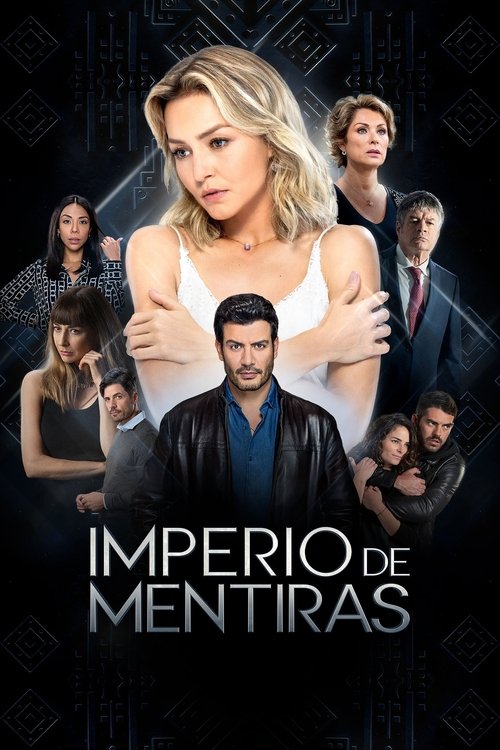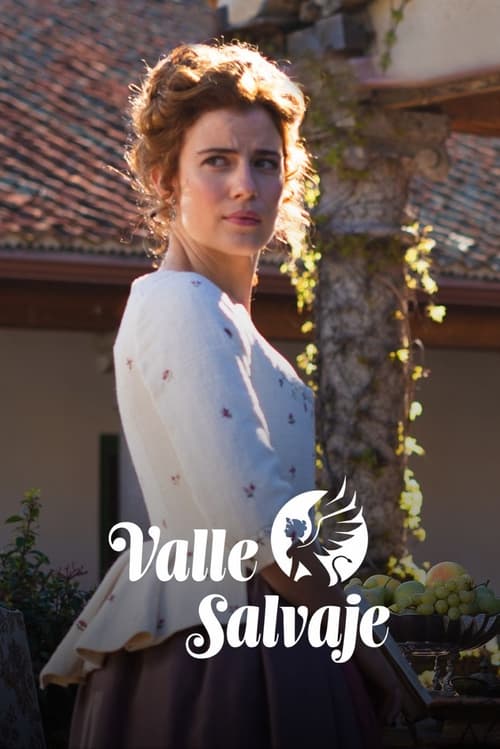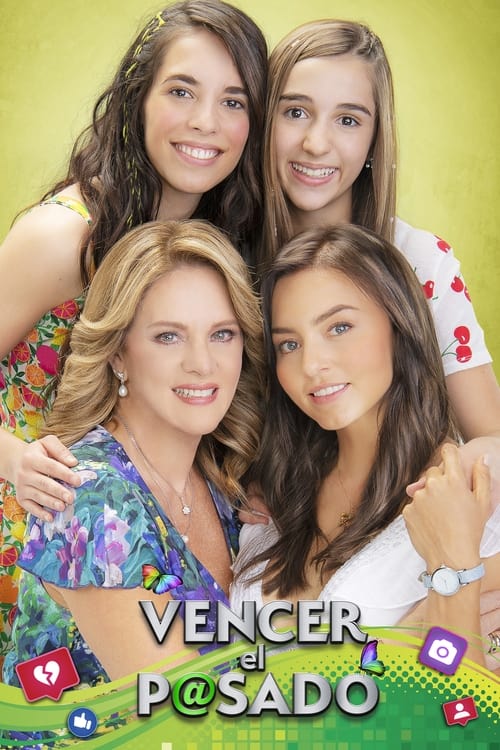
Ask Your Own Question
What is the plot?
In Episode 67 of "Vencer la ausencia," the episode opens with a tense atmosphere in the family home. The camera pans over the worried faces of the family members as they gather in the living room, discussing the recent developments regarding the missing person case that has been haunting them. The mood is somber, and the weight of uncertainty hangs heavily in the air. Each character expresses their fears and hopes, revealing their emotional states--some are desperate for answers, while others are trying to maintain a sense of hope.
As the scene shifts, we see one of the main characters, a mother named Valeria, pacing back and forth. She is visibly anxious, her hands trembling slightly as she clutches her phone. Valeria receives a call from a private investigator she hired, who has some leads on her missing daughter. The conversation is filled with tension as Valeria's heart races with anticipation. The investigator mentions a potential sighting of her daughter in a nearby town, which ignites a flicker of hope in Valeria's eyes.
The next sequence takes place in the investigator's office, where Valeria meets with him to discuss the details of the sighting. The investigator, a rugged man with a serious demeanor, lays out the information he has gathered. He explains that the sighting was reported by a local shopkeeper who recognized Valeria's daughter from a photo. Valeria's emotions surge as she listens, torn between hope and fear. She decides to take immediate action and asks the investigator to accompany her to the town to follow up on the lead.
In the following scene, Valeria and the investigator arrive in the small town. The atmosphere is different here; it feels more relaxed, yet there is an underlying tension as they search for clues. They visit the shop where the sighting was reported, and Valeria speaks to the shopkeeper, who recalls seeing a girl matching her daughter's description. The shopkeeper provides a few details about the girl's behavior and the company she was seen with, which raises more questions for Valeria. She feels a mix of hope and dread as she realizes her daughter might be nearby but is still in danger.
As the investigation continues, Valeria and the investigator decide to visit a local park where the girl was last seen. The park is bustling with families and children playing, but Valeria's focus is solely on finding her daughter. She scans the area, her heart pounding as she imagines what her daughter might be going through. Suddenly, Valeria spots a girl who resembles her daughter sitting on a bench with a group of friends. Her heart skips a beat, and she rushes over, only to find out that it is not her daughter. The disappointment hits her hard, and she struggles to hold back tears.
The episode then shifts back to the family home, where Valeria's other children are anxiously waiting for news. They are worried about their mother and the toll this search is taking on her. One of the siblings, a younger brother, expresses his frustration and fear, feeling helpless in the situation. The family dynamics are strained as they grapple with their emotions, each trying to support one another while dealing with their own fears.
Back in the town, Valeria receives a tip from a local who overheard a conversation about a girl fitting her daughter's description being seen at a nearby abandoned building. The urgency in Valeria's voice is palpable as she insists they must check it out immediately. The investigator agrees, and they head towards the building, the tension building with each step. Valeria's determination is fierce; she is driven by a mother's love and desperation to find her daughter.
As they approach the abandoned building, the atmosphere becomes increasingly tense. Valeria's heart races as they enter the dark, dilapidated structure. The air is thick with dust, and the sound of their footsteps echoes ominously. They call out for Valeria's daughter, but the only response is silence. Suddenly, they hear a noise coming from one of the rooms, and Valeria's instincts kick in. She rushes towards the sound, her heart pounding in her chest.
In a climactic moment, Valeria bursts into the room, and her breath catches in her throat as she sees a figure huddled in the corner. It is her daughter, looking disheveled and frightened. Valeria rushes to her, tears streaming down her face as she embraces her daughter tightly. The emotional reunion is filled with relief and joy, but it is quickly overshadowed by the realization that they are not alone. The atmosphere shifts again as they hear footsteps approaching, and Valeria's protective instincts kick in.
The episode concludes with a cliffhanger as Valeria and her daughter prepare to face an unknown threat, leaving viewers on the edge of their seats, eager to see what will happen next. The emotional rollercoaster of the episode captures the essence of a mother's love and the lengths she will go to protect her family.
What is the ending?
In the ending of "Vencer la ausencia," episode 67, the characters face the culmination of their struggles and emotional journeys. The episode concludes with a sense of resolution for some, while others are left grappling with their choices and the consequences of their actions.
As the episode unfolds, we see the characters navigating their relationships and the aftermath of their decisions. The tension between them reaches a peak, leading to confrontations that reveal deep-seated emotions and unresolved conflicts. Ultimately, some characters find closure, while others are left with lingering questions about their futures.
Now, let's delve into the ending in a more detailed, chronological narrative.
The episode opens with a tense atmosphere in the family home, where the characters are still reeling from the revelations of previous episodes. The camera pans across the living room, capturing the somber expressions on their faces. The air is thick with unspoken words as they gather for what feels like a final confrontation.
In the first scene, we see Valeria pacing nervously, her mind racing with thoughts of her past decisions. She reflects on her relationships, particularly with her mother and siblings. Her internal struggle is palpable as she grapples with guilt and the desire for forgiveness. The camera zooms in on her face, highlighting the tears welling in her eyes, symbolizing her emotional turmoil.
Next, the scene shifts to the kitchen, where the family gathers for a tense dinner. The atmosphere is charged with unspoken tension. Valeria finally breaks the silence, voicing her regrets and seeking understanding from her family. Her voice trembles as she recounts her mistakes, and the camera captures the reactions of her family members--some are sympathetic, while others are defensive. This moment serves as a turning point, as it lays bare the fractures within the family dynamic.
As the dinner progresses, we see a heated exchange between Valeria and her mother, who struggles to reconcile her feelings of disappointment with her love for her daughter. The dialogue is sharp and emotional, revealing the depth of their conflict. The camera alternates between close-ups of their faces, emphasizing the pain and love intertwined in their relationship.
In a parallel scene, we find Alejandro grappling with his own demons. He is seen alone in his room, reflecting on his choices and the impact they have had on those around him. The dim lighting casts shadows on his face, symbolizing his internal struggle. He picks up his phone, hesitating before deciding to reach out to Valeria, signaling his desire to mend their relationship.
The climax of the episode occurs when Valeria and Alejandro finally confront each other. They meet in a park, a place that holds memories of happier times. The setting sun casts a warm glow around them, contrasting with the heaviness of their conversation. Valeria expresses her longing for reconciliation, while Alejandro admits his own faults. Their dialogue is raw and honest, filled with vulnerability. The emotional weight of their words hangs in the air, and the audience can feel the tension as they navigate their feelings for one another.
As the episode draws to a close, we see the family coming together in a moment of unity. They gather in the living room once more, this time with a renewed sense of hope. Valeria's heartfelt apology resonates with her family, and they begin to share their own feelings, leading to a cathartic release of emotions. The camera captures the tears and smiles as they embrace, symbolizing their commitment to healing and moving forward together.
In the final moments, the camera pans out, showing the family sitting together, a stark contrast to the isolation they felt earlier. The screen fades to black, leaving the audience with a sense of bittersweet resolution. Each character is left with the understanding that while their journey is far from over, they have taken significant steps toward healing and reconciliation.
In summary, the fates of the main characters are intertwined with themes of forgiveness, love, and the complexities of family dynamics. Valeria and Alejandro find a path toward reconciliation, while the family as a whole begins to mend their fractured relationships, setting the stage for future growth and understanding.
Is there a post-credit scene?
In "Episode 67" of "Vencer la ausencia," there is no post-credit scene. The episode concludes with a poignant moment that encapsulates the emotional turmoil and unresolved tensions among the characters, leaving viewers with a sense of anticipation for the next developments in their intertwined lives. The focus remains on the main narrative, emphasizing the struggles and growth of the characters as they navigate their complex relationships and personal challenges.
How does the relationship between Emiliano and his father evolve in this episode?
Emiliano struggles with his father's expectations and the pressure to conform, leading to a pivotal moment where he stands up for his own desires, showcasing his growth and desire for independence.
What revelation does the character of Diego have about his past in this episode?
Diego uncovers a hidden truth about his family's history that shakes his understanding of his identity, prompting him to reevaluate his relationships and choices moving forward.
How does the episode depict the theme of forgiveness through the interactions of the main characters?
Throughout Episode 67, characters grapple with their past mistakes, leading to moments of vulnerability where they seek forgiveness from one another, illustrating the complexities of their relationships and the emotional weight of their decisions.
What significant event occurs between the characters of Valeria and her mother in Episode 67?
In Episode 67, Valeria confronts her mother about the secrets that have been kept from her, leading to an emotional confrontation that reveals deep-seated feelings of betrayal and longing for connection.
What role does the character of Renata play in the unfolding drama of Episode 67?
Renata finds herself caught in the middle of the family conflict, trying to mediate between Valeria and her mother, which highlights her loyalty and the emotional toll it takes on her.
Is this family friendly?
"Vencer la ausencia," while primarily a family drama, does contain themes and scenes that may be sensitive for children or those who are easily upset. In episode 67, viewers may encounter:
- Emotional Turmoil: Characters experience intense emotional struggles, including grief and betrayal, which may be distressing for younger audiences.
- Conflict and Tension: There are scenes of family conflict that can be quite heated, showcasing arguments and misunderstandings that might be uncomfortable to watch.
- Themes of Loss: The overarching theme of absence and loss can evoke strong feelings, particularly for those who have experienced similar situations in their own lives.
- Romantic Complications: There are complex romantic relationships that may involve jealousy and heartbreak, which could be confusing or upsetting for younger viewers.
These elements contribute to a narrative that, while rich in character development and emotional depth, may not be suitable for all children or sensitive viewers.





























